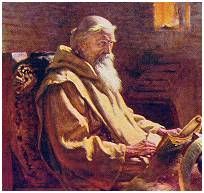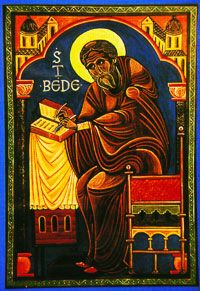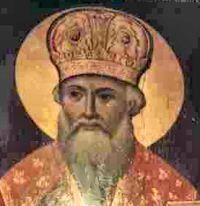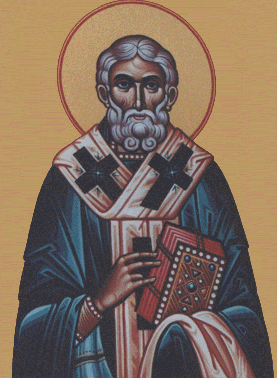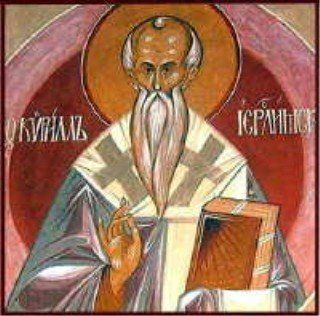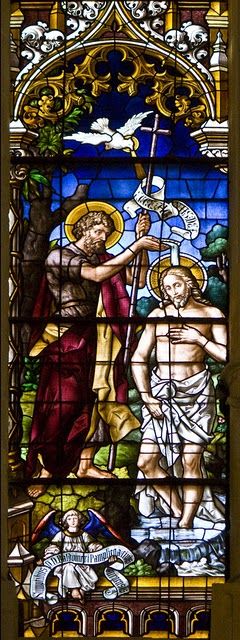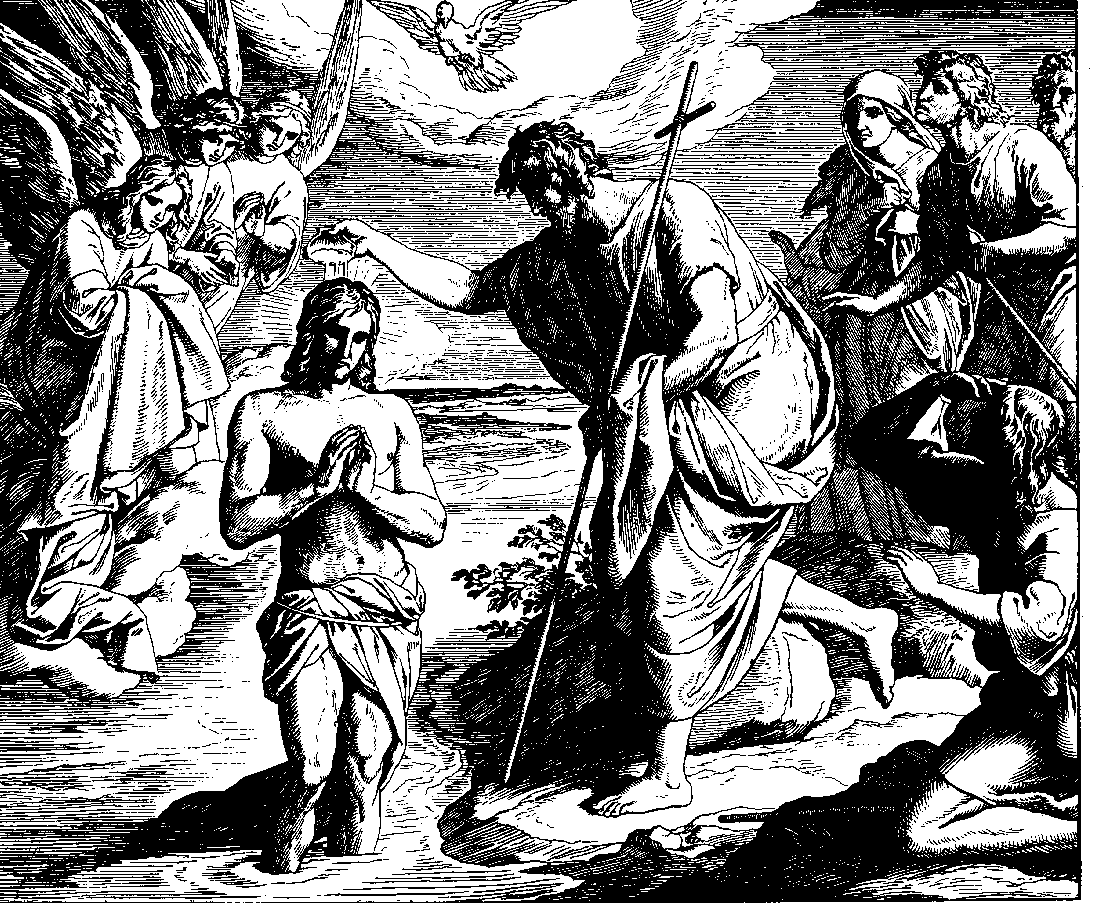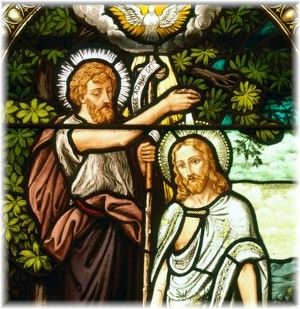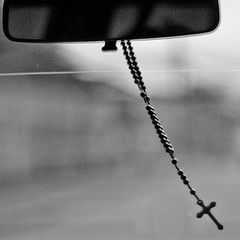Today, January 9, we celebrate the
Feast of the Baptism of the Lord in the River Jordan by
Saint John the Baptist—the first of the Luminous Mysteries of the Holy Rosary. At the end of the Christmas season, we, like Saint John the Baptist look forward to what was foretold in the Old Testament, the coming of Jesus, and His entering into public ministry. The Feast of the Baptism of the Lord—like
Pentecost—reveals to us the Trinity, and makes the divinity of Christ evident through the descent of the Spirit and the words of the Lord, Our Father—the same words later to be repeated at the
Transfiguration on Mount Tabor.
But the question becomes, why would Jesus, the Son of God, both human and divine, and free from all sin, be baptized at all? And the simple answer lies in the revelation of the Trinity, in the descent of the Spirit, in the commanding voice of the Father:
“This is my Son, whom I love; with him I am well pleased.” In this moment, Jesus is revealed to the nations in His Glory, the Word made manifest. The true and unique God, Father, Son, and Holy Spirit, shows Himself in Christ, through Him, with Him and in Him.
1 In those days John the Baptist came, preaching in the wilderness of Judea 2 and saying, “Repent, for the kingdom of heaven has come near.” 3 This is he who was spoken of through the prophet Isaiah:
“A voice of one calling in the wilderness,
‘Prepare the way for the Lord,
make straight paths for him.’”
4 John’s clothes were made of camel’s hair, and he had a leather belt around his waist. His food was locusts and wild honey. 5 People went out to him from Jerusalem and all Judea and the whole region of the Jordan. 6 Confessing their sins, they were baptized by him in the Jordan River.
 7 But when he saw many of the Pharisees and Sadducees coming to where he was baptizing, he said to them: “You brood of vipers! Who warned you to flee from the coming wrath? 8 Produce fruit in keeping with repentance. 9 And do not think you can say to yourselves, ‘We have Abraham as our father.’ I tell you that out of these stones God can raise up children for Abraham. 10 The ax is already at the root of the trees, and every tree that does not produce good fruit will be cut down and thrown into the fire.
7 But when he saw many of the Pharisees and Sadducees coming to where he was baptizing, he said to them: “You brood of vipers! Who warned you to flee from the coming wrath? 8 Produce fruit in keeping with repentance. 9 And do not think you can say to yourselves, ‘We have Abraham as our father.’ I tell you that out of these stones God can raise up children for Abraham. 10 The ax is already at the root of the trees, and every tree that does not produce good fruit will be cut down and thrown into the fire.
11 “I baptize you with water for repentance. But after me comes one who is more powerful than I, whose sandals I am not worthy to carry. He will baptize you with the Holy Spirit and fire. 12 His winnowing fork is in his hand, and he will clear his threshing floor, gathering his wheat into the barn and burning up the chaff with unquenchable fire.”
 13 Then Jesus came from Galilee to the Jordan to be baptized by John. 14 But John tried to deter him, saying, “I need to be baptized by you, and do you come to me?”
13 Then Jesus came from Galilee to the Jordan to be baptized by John. 14 But John tried to deter him, saying, “I need to be baptized by you, and do you come to me?”
15 Jesus replied, “Let it be so now; it is proper for us to do this to fulfill all righteousness.” Then John consented.
16 As soon as Jesus was baptized, he went up out of the water. At that moment heaven was opened, and he saw the Spirit of God descending like a dove and alighting on him. 17 And a voice from heaven said, “This is my Son, whom I love; with him I am well pleased.” (Matthew 3:1-17)

The divinity and mission of Christ was made manifest through his submitting to baptism by water at the hands of Saint John the Baptist, the descent of the Spirit in the form of a dove, and the proclamation of the Lord from Heaven. It would not be long before Our Blessed Mother would echo this proclamation, at the
Wedding in Cana, commanding us to “Listen to Him,” her Son, Our Lord.

But the Church fathers, theologians, and scholastics point to other reasons that Jesus be baptized by Saint John the Baptist is especially meaningful and fitting. Saint Thomas Aquinas asserted that in receiving baptism, Christ sanctified the sacrament, began the process of the sanctification of mankind, and provided an example for all, that we too might receive baptism. Saint John Chrysostom wrote
"In truth, Christ needed not baptism, neither his nor any other; but rather baptism needed the power of Christ." That is, as Saint Gregory Nazianzen wrote,
“Christ was baptized that He might plunge the old Adam entirely in the water.” At the River Jordan, Jesus not only instituted the sacrament of baptism, he began the healing process of sanctification and reconciliation for all of us, by blessing the waters of the earth with his divinity.

Perhaps Saint Maximus of Turin stated it best, when he wrote,
“For when the Savior is washed, all water for our baptism is made clean, purified at its source for the dispensing of baptismal grace to the people of future ages. Christ is the first to be baptized, then, so that Christians will follow after him with confidence.” In submitting Himself humbly to baptism, Jesus reminds us of how thankful we should be for this important sacrament-- which frees us from the darkness of sin and incorporates us in the Church, the life of Christ on earth! The baptism of Jesus, therefore, was necessary—not for Him, but for us.

Jesus was, therefore, baptized for us, for sinners, for our salvation. Just as Saint John the Baptist, the Precursor of Christ prepared the way for Jesus, the baptism of Jesus prepared the way for all of us to be baptized into the faith, into forgiveness, and into salvation!
Venerable Saint Bede wrote:
“...the baptism of John was as profitable before the baptism of Christ, as instruction in the faith profits the catechumens not yet baptized. For just as he preached penance, and foretold the baptism of Christ, and drew men to the knowledge of the Truth that hath appeared to the world, so do the ministers of the Church, after instructing men, chide them for their sins, and lastly promise them forgiveness in the baptism of Christ.”

While Baptizing the children in the Sistine Chapel Pope Benedict XVI said:
“Baptism is not only a word, it is not only something spiritual but also implies matter. All the realities of the earth are involved. Baptism does not only concern the soul. Human spirituality invests the totality of the person, body and soul. God’s action in Jesus Christ is an action of universal efficacy. Christ took flesh and this continues in the sacraments in which matter is taken on and becomes part of the divine action. We can now ask precisely why water should be the sign of this totality. Water is the element of fertility. Without water there is no life. Thus, in all the great religions water is seen as the symbol of motherhood, of fruitfulness. For the Church Fathers, water became the symbol of the maternal womb of the Church. In Baptism, the Heavenly Father says: “You are my child.” Baptism is adoption and admission into God’s family, into communion with the Father, the Son and the Holy Spirit. For this very reason, Baptism should be administered in the Name of the Most Holy Trinity. These words are not merely a formula; they are reality.”

Our own baptism, therefore, echoes that of Christ’s baptism in the River Jordan. Just as He was identified by the Lord, from Heaven, as His Beloved Son, so, too, are we identified in baptism as beloved sons and daughters of the Lord. We are baptised in water, but enlighted by the Spirit, called to our ministry: to build a community of faith on earth—humbly, lovingly, obediently, and faithfully. Let us look to the perfect model of these virtues, Jesus Christ, on this the day He began His public ministry, and walk in His footsteps, enlighted and purified by our own baptisms!
Almighty, eternal God,
when the Spirit descended upon Jesus
at His baptism in the Jordan,
You revealed Him as Your own beloved Son.
Keep us, Your children born of water and the Spirit,
faithful to our calling.
We ask this through our Lord Jesus Christ, Your Son,
who lives and reigns with You and the Holy Spirit,
one God forever and ever. Amen.
Looking Back: Find my post on the Baptism of the Lord from 2010 by clicking on the “rearview mirror” to the left. Saint John the Baptist is also my chosen Confirmation saint. To read more about this holy and humble man, visit the following links:
Nativity of Saint John the Baptist
Saint John the Baptist: Precursor and Forerunner of Christ (A Homily written by Saint Bede)
Saint John the Baptist: Anticipation of Christ (A Sermon written by Saint Augustine of Hippo)
Litany of Saint John the Baptist
Martyrdom of Saint John the Baptist
Year 2: Day 9 of 365
Prayer Intentions: Lives that are pleasing to the Lord.
Requested Intentions: Improved financial stability (A); Improved relationship with business partner (A); For employment (N); Reconciliation of a workplace relationship (R); Healing of son, cousin, and friend (L); Healing of a husband from cancer, end to medical problems (T); Freedom from persecution (E); Successful employment (R); Reconciliation of a marriage (M); Successful marriage, employment, healing (J); For a family struggling with a difficult situation (M); For family intentions (I); Reconciliation of a marriage (S); For blessings upon a family (R); Permanent employment (N); Successful employment (M); Healing of a father following stroke (S).
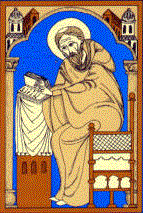 The deliverance of the children of Israel and their journey to the long-promised land correspond with the mystery of our redemption. we are making our way toward the light of our heavenly home with the grace of Christ leading us and showing us the way. The light of his grace was also symbolised by the cloud and the pillar of fire, which protected the Israelites from darkness throughout their journey, and brought them by a wonderful path to their promised homeland.
The deliverance of the children of Israel and their journey to the long-promised land correspond with the mystery of our redemption. we are making our way toward the light of our heavenly home with the grace of Christ leading us and showing us the way. The light of his grace was also symbolised by the cloud and the pillar of fire, which protected the Israelites from darkness throughout their journey, and brought them by a wonderful path to their promised homeland.






